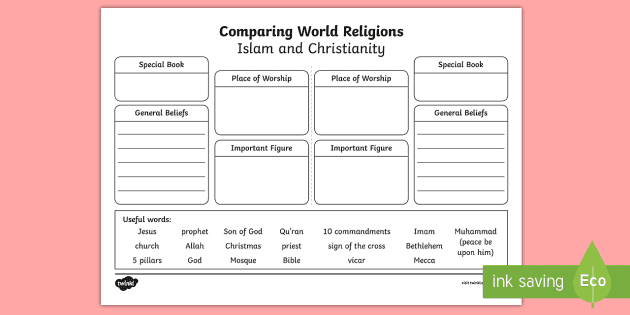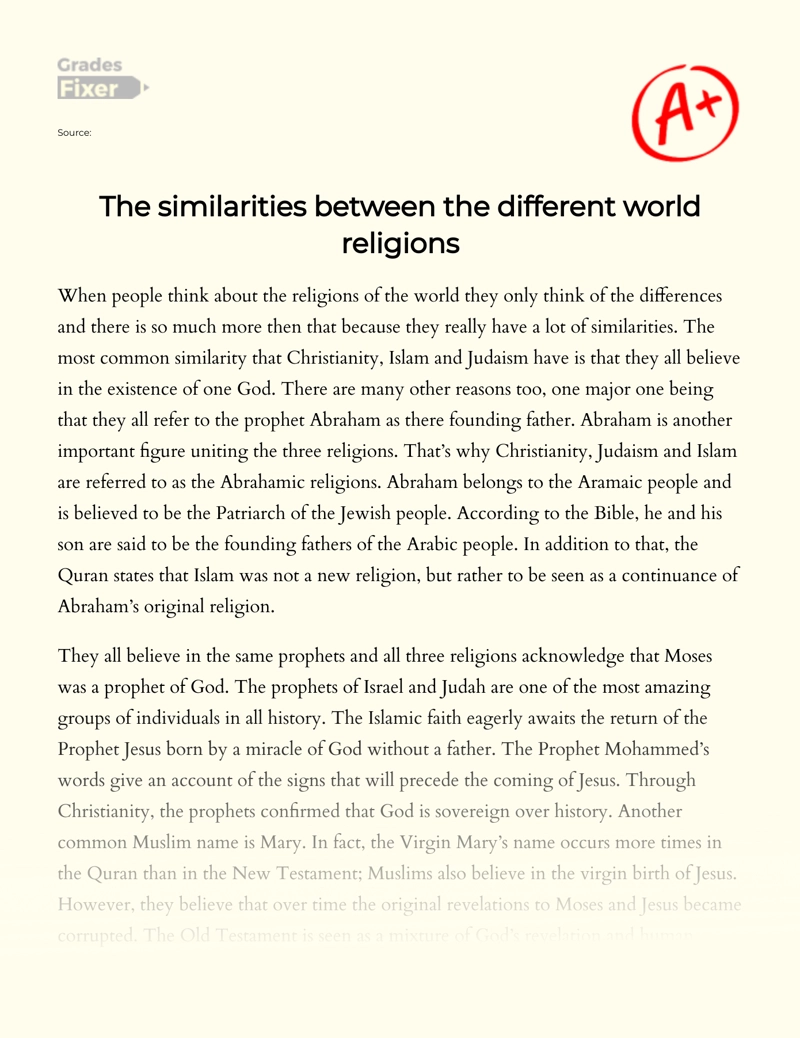Religion is a set of beliefs, practices, and rituals centered on the worship of one or more deities or higher powers. It is a way for people to connect with the divine and find meaning and purpose in life. There are many different religions in the world, each with its own set of beliefs, practices, and rituals. While there are significant differences between religions, there are also many similarities.
One similarity among religions is the belief in a higher power or divine force. Nearly all religions have a concept of a higher being or deities who are responsible for the creation and operation of the universe. This higher power is often believed to be the source of morality and guidance for believers.
Another similarity among religions is the importance of rituals and ceremonies. Many religions have specific rituals and ceremonies that are central to their beliefs and practices. These may include prayer, meditation, and acts of devotion such as offerings or sacrifices. These rituals often serve to connect believers with the divine and bring them closer to their higher power.
A third similarity among religions is the concept of a moral code or set of guidelines for ethical behavior. Nearly all religions have a set of principles that believers are expected to follow in order to live a good and virtuous life. These principles often include concepts such as compassion, kindness, and respect for others.
Despite these similarities, there are also significant differences between religions. One major difference is the belief in specific deities or higher powers. While many religions believe in one or more gods or goddesses, others do not believe in any deities at all. For example, Buddhism is a religion that does not involve the worship of any deities, but rather focuses on spiritual enlightenment and the attainment of nirvana.
Another difference between religions is the way in which they interpret and understand the divine. Different religions may have different beliefs about the nature of the higher power or how it interacts with the world. Some religions may believe that the divine is directly involved in the affairs of humans, while others may see the divine as more distant and removed.
A third difference between religions is the way in which they are practiced and the role that religion plays in daily life. Some religions may have specific rituals or ceremonies that must be performed regularly, while others may place less emphasis on formal religious practices. Some religions may also have strict rules about how believers should live their lives, while others may be more flexible and open to interpretation.
In conclusion, while there are many similarities among religions, such as a belief in a higher power and the importance of rituals and moral codes, there are also significant differences in the way that religions are practiced and understood. Despite these differences, religion remains an important aspect of life for many people around the world, providing a sense of connection with the divine and a framework for ethical behavior.




